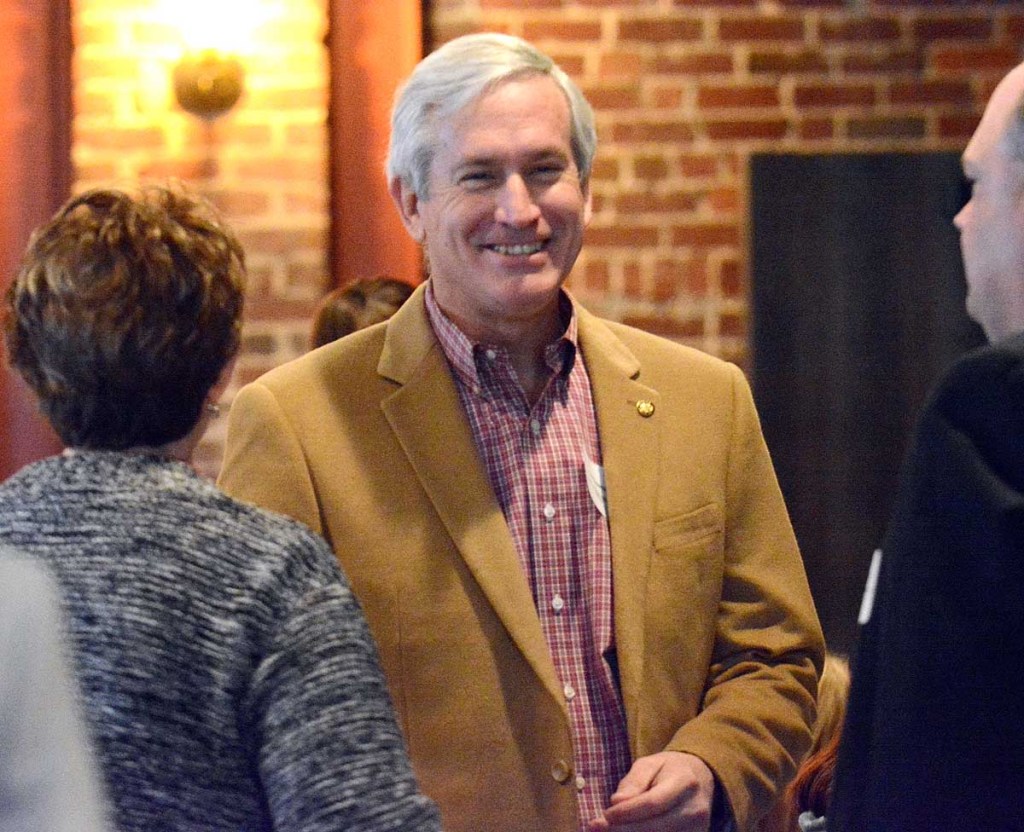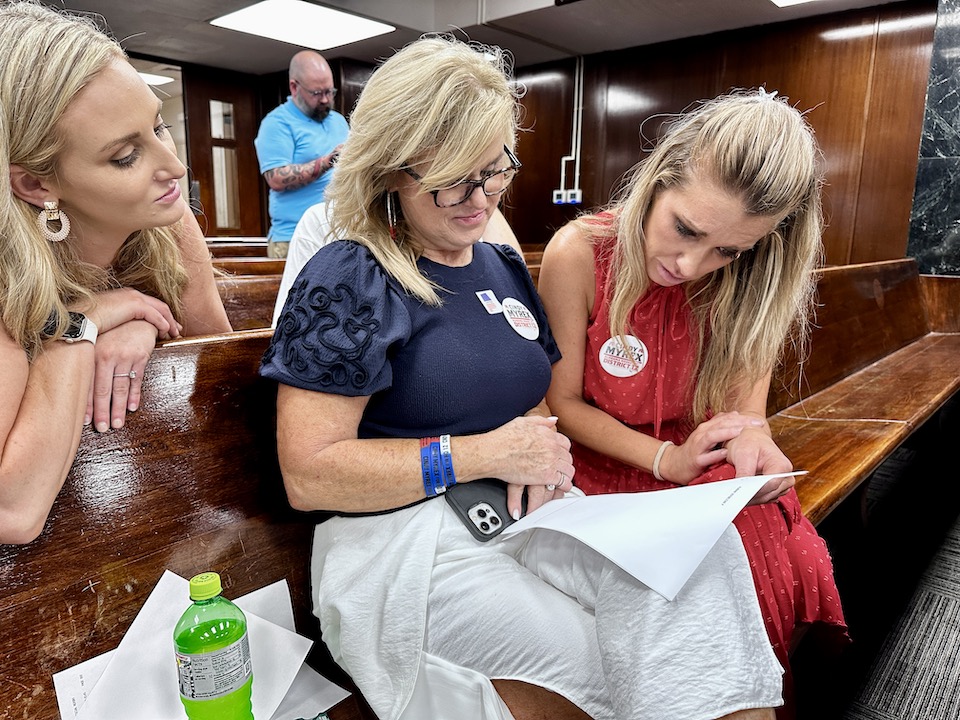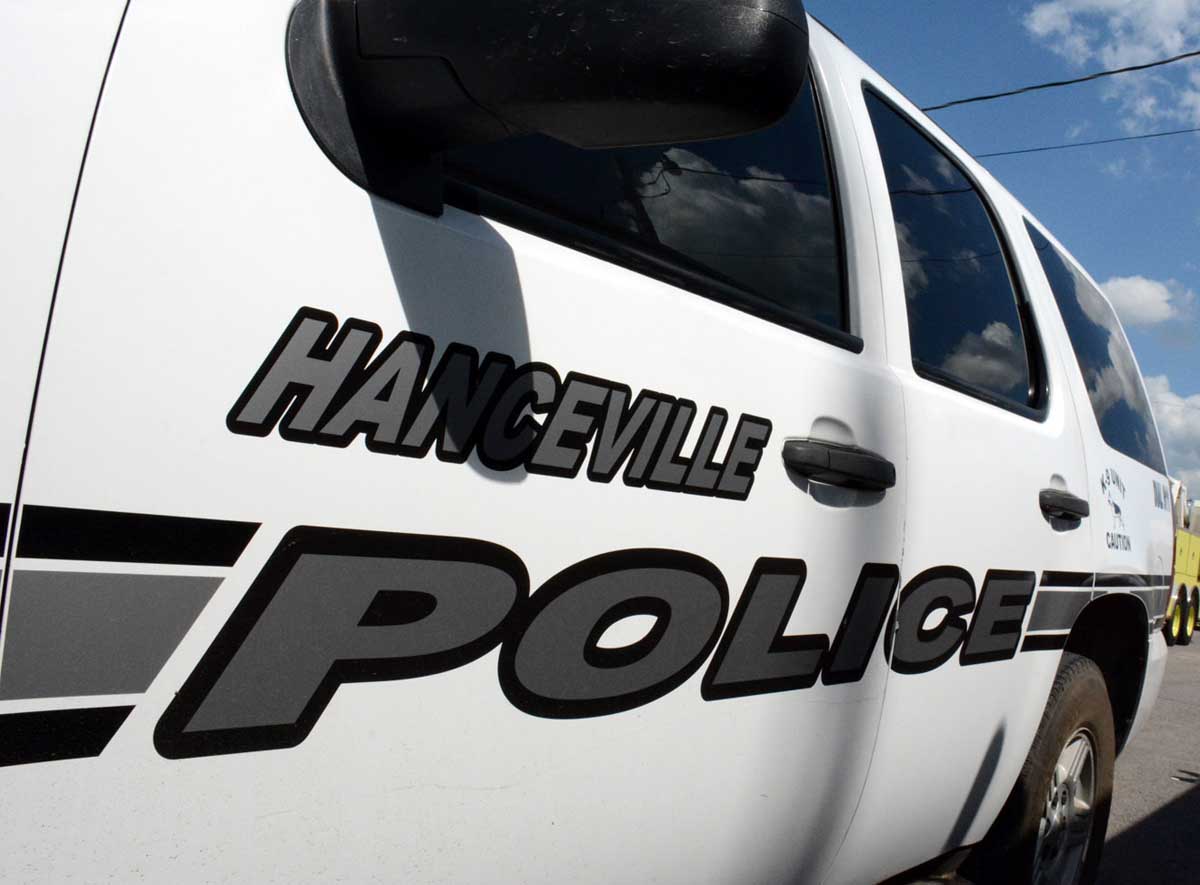Spay-neuter clinics lose bid to gain legitimacy
Published 11:07 am Friday, April 18, 2014

- Sen. Paul Bussman, pictured, State Rep. Randall Shedd and Rep. Mac Buttram talk about issues facing the area and state at the Fourth Friday luncheon in Cullman on Friday.
Alabama Sen. Paul Bussman received more than $14,000 from veterinarians across the state — including $10,000 from the Political Animal political action committee — prior to filibustering a bill to allow nonprofit spay-neuter clinics to continue operating in the state.
Trending
The bill was ultimately removed from the state Senate’s calendar on the last day of session after passing the Alabama House of Representatives in February. The proposed law would have allowed the four nonprofit spay-neuter clinics currently operating illegally in the state to stay open. The clinics contract with licensed veterinarians for services.
In recent years, members of the Alabama State Board of Veterinary Medical Examiners have opposed the spay-neuter clinics and called for their closure, arguing the law says veterinarians must work for other veterinarians, and that agencies — like non-profits —can’t hire a veterinarian to spay and neuter.
Bussman told AL.com his rationale for forcing HB 141 off the calendar was because the state veterinarian board had ongoing legal action against the spay-neuter clinics. When speaking on the Senate floor, Bussman said he wanted the clinics to work on a compromise that was acceptable to the board.
Multiple attempts to contact Bussman for comment on the proposed bill were unsuccessful.
Veterinarians opposed to low-cost spay and neuter clinics donated to Political Animal PAC, which states it was formed “to protect and promote the practice of veterinary medicine, and its owners, in the state of Alabama.” The PAC donated $10,000 to Bussman’s campaign on Sept. 26, campaign finance records show.
Bussman received another $600 from two Auburn veterinarian clinics and an Auburn vet in August. Another $3,475 in campaign contributions were made to Bussman’s campaign from vets across the state in September.
Trending
Under current state law, only a licensed Alabama veterinarian can own a veterinary practice, not a non-profit organization. A licensed vet is also prohibited from practicing veterinary medicine as an employee of a person not licensed as an Alabama veterinarian.
During the 2013 legislative session, Bussman proposed a bill that would make any vet employed by a non-profit exempt from the employment and ownership restrictions and create a process to apply for a premises permit through the Alabama State Board of Veterinary Medical Examiners. That legislation never made it out of committee.
State Rep. Patricia Todd, D-Birmingham, authored the bill that died in the Senate earlier this month. She said the veterinarian rule is not found in any other professional regulation in Alabama. She believes the clinics are critical because stray and feral dogs and cats can cause public health and safety problems. Todd said the board has made the clinics technically illegal, and that one of the four clinics may be shut down by the state.
Some local vets are divided on the issue.
Bruce Lee with Lee’s Veterinary Hospital said he had not read the bill that went before the Legislature but from what he understood about it, he didn’t why there was an uproar over allowing vets to provide spay and neutering for people who couldn’t afford it. He cited the benefits of reducing the number of unwanted animals, crowding at animal shelters and roaming in the community.
“My goal has always been to think about the animal first, then the client second and the financial aspect third,” Lee said. “I just don’t think any vet should have an issue with a program that provides better care for animals and reduces the number of strays.”
Lee has been running his veterinary practice, located on U.S. 31, since 1986. He said his business philosophy has been to focus on providing the best service for his clients and their animals — including care during emergencies — and not worrying about the competition.
Lee said generally, the cost to spay and neuter at his practice is $190 for female dogs, $160 for male dogs, $150 for female cats and $75 for male cats. Those costs include anesthesia, electronic monitoring during surgery and pain medication.
The Alabama Spay Neuter Clinic in Birmingham’s fees are as follows: $95 for a female dog, $75 for a male dog, $70 for a female cat and $50 for a male cat.
Steve Murphree with Cullman Veterinary Hospital said he, like many vets, believe the clinics are operating with an unfair advantage due to its tax-exempt status and their providing other services outside of spay and neuter surgeries like flea and tick control, micro-chips for location, de-worming and vaccines.
“It’s not that vets are opposed to spay and neuter,” Murphree said. “I don’t think you will find a vet that doesn’t recognize the pet overpopulation problem. It’s just a matter of setting down some basic oversight and minimum regulations these clinics have to meet, the same that’s required of vets.”
He said the clinics are allowed to operate tax-free and take in donations to offset their costs with no regulation by the Alabama State Board of Veterinary Medical Examiner which has oversight over other veterinarians. Murphree said he and other vets are concerned about the quality care animals are receiving at the clinics.
He said on a busy day, his office would perform around 15 surgeries while the low-cost clinics can average 30 to 40 surgeries a day. An representative with the Alabama Spay Neuter Clinic in Birmingham said its facility is capable of performing up to 100 surgeries a day, however it tries not to book more than 90 and averages around 40 a day.
Murphree said vets were opposed to Dodd’s bill because it offered no compromise.
“It’s about being on a level playing field,” Murphree said. “If every vet could operate without having to pay taxes and accept donations then I’d be all for it. That and don’t allow them to do everything else that a regular veterinarian’s office provides.”
Both sides of the issue said they expect it to return during the next legislative session. Danie Pelt, business development coordinator with the Alabama Spay Neuter Clinic in Birmingham, said the group’s current goal is to clear up misinformation about the clinics and the quality of the services they provide.
“We’re holding very strongly to our belief that the best way and the most humane way to prevent overpopulation is spay and neutering.”
Tiffeny Owens can be reached by email at towens@cullmantimes.com or by phone at 256-734-2131, ext. 135.





